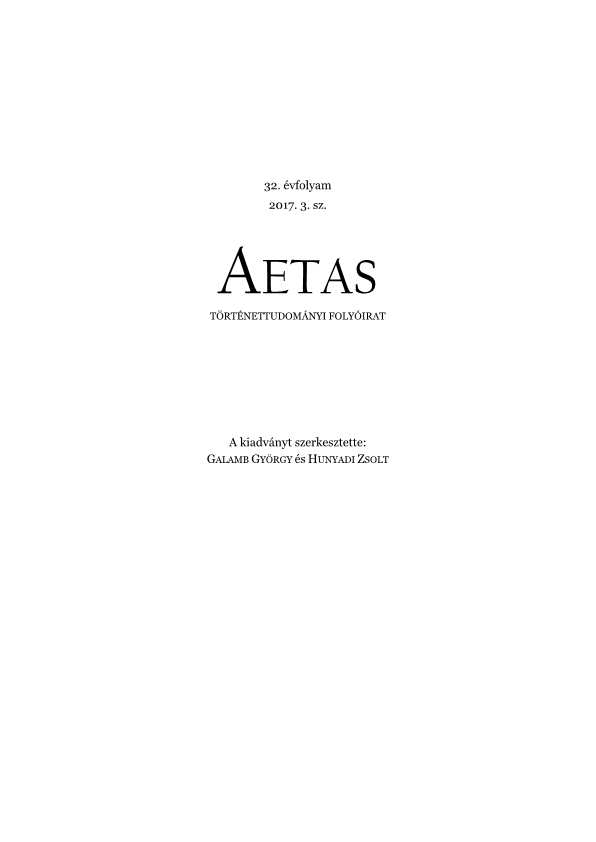A császári univerzalizmus Zsigmond diplomáciájának gyakorlatában (A franciaországi és angliai látogatás tanulságai)
Imperial universalism in Sigismund's diplomatic practice. The morals of the visits to France and England
Author(s): Sándor CsernusSubject(s): 15th Century
Published by: AETAS Könyv- és Lapkiadó Egyesület
Summary/Abstract: Sigismund of Luxembourg was the longest reigning monarch in the history of the independent Kingdom of Hungary. During fifty-year reign, significant changes occurred in the history of Western Christianity, and by extension, Hungary. The Western dynasties (Anjou, Luxemburg, Habsburg) were living a period of successful expansion in Central-Eastern Europe during the Anjou reign in Hungary and the Luxembourg reign in Bohemia. It's becoming more and more obvious that several aspects of Sigismund's rule in Hungary can also be considered parts of this process. The Luxembourgs were aiming to establish strong positions in Central Europe, and to acquire the title of Emperor. The study examines Sigismund's international policy, which encompassed an uncharacteristically large area, as well as the methods of such policy. The "crisis" of the medieval West brought several common problems to light, which were economic, societal, organizational, political, military and ideological in nature. One of the most obvious manifestations of the division of Christianitas and the waste of resources was the Hundred Years' War. The answer to the schism was reformatio in capite et in membris, in the case of the Hundred Years' War it was peace mediation, and the reaction to the outside threat was a new Crusade. Sigismund used the widespread notion of conciliarism to convoke the Council of Constance, and he was commissioned by the Council to launch a mediation mission during the Hundred Years' War as Imperator Pacificus. The aforementioned crisis brought about the renaissance of imperial universalism, as well as the general strengthening of the Emperor's position. Sigismund successfully solved some of these problems, even though his solutions were controversial. Sigismund strongly depended on the principle of imperial supremacy, that could be derived from imperial universalism. However, this obviously infringed the sovereignty of the big national monarchies. His endeavors sparked overt or covert opposition from his partners. This is clearly visible in the French and English stages of his mediation attempt, which included several symbolic events. These events were interpreted somewhat differently by English, French, Belgian, and German historiographies. The study examines this process by comparing sources, and confirms that the alliances in Canterbury and Calais (1416), formed instead of peace mediation, ensured the undisturbed operation of the Council of Constance, and created a temporary balance between the rivaling Western powers. However, this balance was tainted by internal tension, and it foreshadowed the final, desperate struggles of the Hundred Years' War. The decline of conciliarism and imperial universalism also decreased the effectiveness of Sigismund's actions. This study considers the process to be the culmination of Sigismund's diplomacy based on universalism, and at the same time the confirmation of the national component in the big Western monarchies ("the king is Emperor in his kingdom") in a new context, which means the consolidation of the concept of sovereignty.
Journal: AETAS - Történettudományi folyóirat
- Issue Year: 2017
- Issue No: 3
- Page Range: 52-73
- Page Count: 22
- Language: Hungarian

